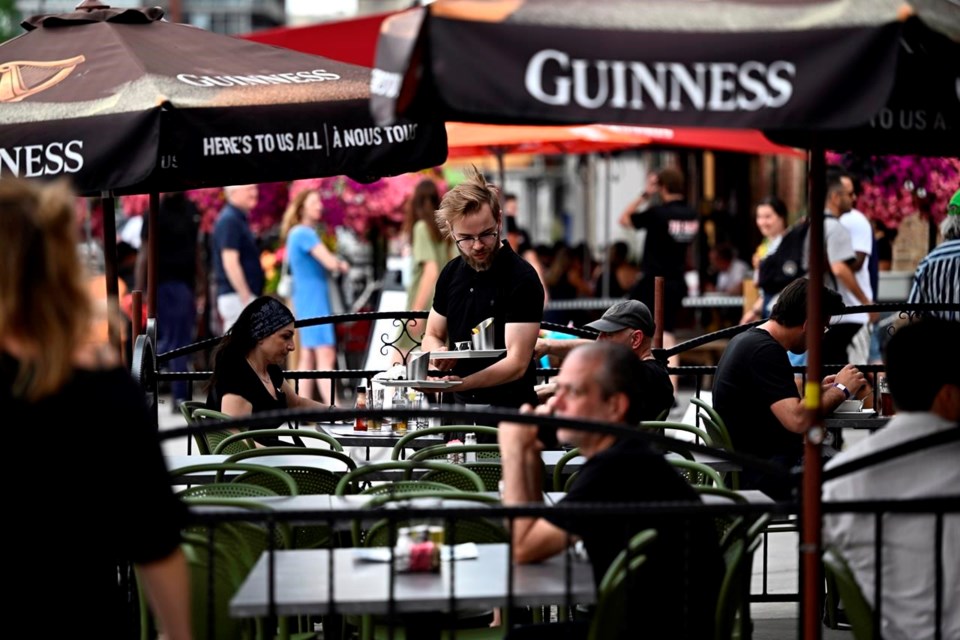TORONTO — The sun's out, the days are longer and for many, the wallet's feeling a bit lighter.
It's a pattern that seems to come around every year as Canadians emerge from the cold winter, having spent months craving the chance to enjoy a drink on the patio or plan that cottage getaway.
But summer plans can be pricey, especially given high inflation rates seen over the past year. Luxshana Sivaneswaran of Markham, Ont. called it a "scary" time of year for spending cash, especially for young adults.
"I hibernate a little bit, I don't really come out in the cold on my free-will," said Sivaneswaran, 27.
"In the summer, I would make plans with my friends and catch up with them and it can quickly add up, but I feel like the cost of just a bite or a drink is more than it used to be."
Sivaneswaran said at this stage of her life, she's hoping to save for a future home and never thought she'd need a separate budget for the summer months. But between the cost of commuting to downtown Toronto for plans with friends, parking for a few hours and paying her lunch or dinner bill, a "strategic approach" is the only option.
"We're always looking out for like free things to do in the city," she said.
"A couple of weekends back there was the Open Doors Toronto event. I very much capitalized on that as much as I could."
A recent poll by CIBC found Canadians expect their top spends this summer to be on gas and groceries, food and dining, along with travel.
Last summer, the bank's research found Canadians anticipated spending approximately $1,900 on summer activities, marking an increase of $400 from 2021. This year's data is still being analyzed, but Carissa Lucreziano, vice-president at CIBC Financial and Investment Advice, said she expected similar high spending trends due to inflation rates.
"Summertime is the season when Canadians typically spend the most of their money. We have tough winters in Canada, so it makes us want to go out and enjoy ourselves," sid Lucreziano.
"Now's a really good time to think about that summer spend, but also if Canadians are thinking about being prudent and really paying attention to their budget, how can you cut back on summer spending, but also have lots of fun."
Lucreziano recommends creating and sticking to a budget, as well as cutting down on your grocery bill by looking for sales and price matching opportunities. Carefully purchasing quantities of items that you know your household can consume before they spoil can also make a big difference.
Consumers should also evaluate monthly spending patterns and pull back on automatic expense withdrawals for things such as unused gym membership subscriptions. She added that taking stock of the rewards program associated with your credit card to ensure it aligns with your goals and needs is also key.
"Depending on the program you may be able to redeem points to pay down your credit card purchases, save on travel costs or purchase household and other items from major retailers," said Lucreziano.
One of the biggest mistakes people make is neglecting to map out their likely expenses in advance and then spending the summer "digging yourself into a hole and the rest of the year digging yourself out," said Eitan Dehtiar, a volunteer with CPA Canada's financial literacy program.
He said it's much easier to trim the "nice-to-have" bills than "need-to-haves" by looking for alternatives. That may mean commuting to a gathering by subway rather than jumping in an Uber.
"If you've got family commitments, such as kids and all of that, you can map out some of those camp expenses, but I think a lot of the discretionary spend and discipline around that is always one of the toughest things for people in almost any stage to deal with," Dehtiar said.
Lucreziano said as inflation slows and prices start to soften, Canadians could see a small break in their pocketbook by next summer, with year-over-year spending potentially flatlining.
For Sivaneswaran, any relief would be welcome.
"I'm feeling it probably more than I ever have before and that has a lot to do with where I am in life," she said.
"I have shifting priorities, other things that I'd like to allocate my savings and expenses to, so it cuts deeper than I wish it did."
This report by The Canadian Press was first published July 13, 2023.
Sammy Hudes, The Canadian Press



